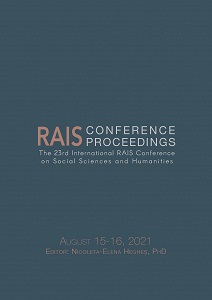Strange Harmony: Human Nature and Tyranny in the Eyes of Czesław Miłosz
Strange Harmony: Human Nature and Tyranny in the Eyes of Czesław Miłosz
Author(s): Milen Jissov
Subject(s): Other Language Literature
Published by: Scientia Moralitas Research Institute
Keywords: Czesław Miłosz; Tyranny; Totalitarianism; Subjectivity; Eastern Europe;
Summary/Abstract: If every age has its signature works, The Captive Mind by Czesław Miłosz is such a work for the Cold War. Published in 1953 and valorized in the West as an incisive critique of the Soviet Bloc, it analyzes the inner world of Eastern Europeans caught in the grip of Stalinist tyranny. This subjectivity is what Miłosz calls “the captive mind.” But with the Cold War long over, it is time to rethink and reassess his classic. This is the purpose of this paper. Casting a critical look at it, the paper argues that The Captive Mind is afflicted and debilitated by an implicit, but all too serious, aporia. As a part of his analysis of Eastern Europe’s incarcerated mind, Miłosz articulates a conception of human nature. In a profound irony, however, that conception aligns with—harmonizes with—his portrayal of the evil Stalinist tyranny enthralling Eastern Europe. Unwittingly, Miłosz in effect naturalizes that tyranny. He suggests that, rather than being evil, it is all too human—corresponding to elemental propensities of human nature. This paper problematizes this dramatic contradiction. Ultimately, it reflects on the implications of this momentous paradox for understanding the character and history of political oppression.
Book: Proceedings of the 23rd International RAIS Conference on Social Sciences and Humanities
- Page Range: 48-53
- Page Count: 6
- Publication Year: 2021
- Language: English
- Content File-PDF

